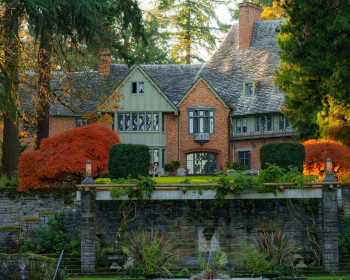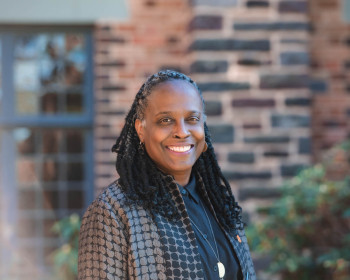Letter from President Wiewel, Oct. 29
Dear Lewis & Clark Community,
With the general election just a few days away, and COVID-19 at crisis levels in many places, it is a good time to reexamine briefly why what we do at Lewis & Clark matters.
Higher education today, certainly in the United States, takes many forms, and each has an important role in a diverse society. You may have heard me list what I see as the core purposes of a liberal arts education: to encourage lifelong exploration of the self, to develop the skills needed to embark on meaningful careers, and to prepare for civil participation in public life. Today, at this pivotal moment, I’d like to focus on that last part—engaged and effective citizenship.
While voting is very much on our minds today, there’s more to it than that. At Lewis & Clark, our core values compel us to act beyond our own self-interests and be mindful of the greater good. The values of collaboration, caring, equity, sustainability, global perspectives, and more, hold true for us as an institution and for our faculty, students, and staff as individuals. We see them embodied as well in the lives of our alumni.
While critical thinking and participating effectively in public life can be seen as the ultimate “whys” of a liberal arts education and professions based on the liberal arts, not everyone shares these views. In fact, a recent report from the Georgetown University Center on Education and the Workforce, finds that people in the United States are moderately inclined toward authoritarianism, falling somewhere between Russia and New Zealand, which reside near opposite ends of the spectrum.
The key finding: higher education, particularly a liberal arts education, makes us less susceptible to authoritarianism. As the report summarizes, “Higher education promotes independent thought, respect for diversity, and inquisitive assessment of evidence—all of which can counteract the unquestioning deference to authority that is characteristic of authoritarianism.” The whole report is worth reading. Suffice it to say, the work we do at Lewis & Clark plays a key role for democracy. I suspect this won’t surprise many of you.
Learning civic values surely does not mean mindless celebration of any one group or perspective. And the ways we teach these aptitudes and values are varied. They include practicing the scientific method; learning from history; appreciating differences in groups and societies over time, geography, and identities; and exploring the vastness of human creativity and thought. These lessons can be learned in classrooms, labs, overseas programs, leadership opportunities on campus and beyond, applied settings working with diverse groups outside of higher education, and anywhere deep conversations can be fostered. We continually seek to expand these opportunities, even in this challenging time.
For our on-campus community in the coming days, we will provide a number of gatherings to discuss the elections and learn more about how the outcomes will affect our nation and the wider world.
So too, our liberal arts approach has played a key role in our efforts to provide the best education possible in the time of COVID-19. Now more than halfway through the semester, we are doing quite well. I can’t express enough the gratitude I have for the trust, patience, and hard work of our students, families, faculty, and staff that have made our success possible. A piece that I wrote with the contributions of a number of our small-school colleagues in the state ran on Sunday in the Oregonian and talks about what’s instructive about our experiences with in-person and virtual education. Thanks to all of you for your support.
As I sign off for now, I wish for each of you to stay safe and be well over the coming days and weeks.
Sincerely,
Wim Wiewel
President
More Office of the President Stories
The Office of the President is located in Frank Manor House on the Undergraduate Campus.
MSC: 33
email president@lclark.edu
voice 503-768-7680
fax 503-768-7688
President Robin Holmes-Sullivan
The Office of the President
Lewis & Clark
615 S. Palatine Hill Road MSC 33
Portland OR 97219

